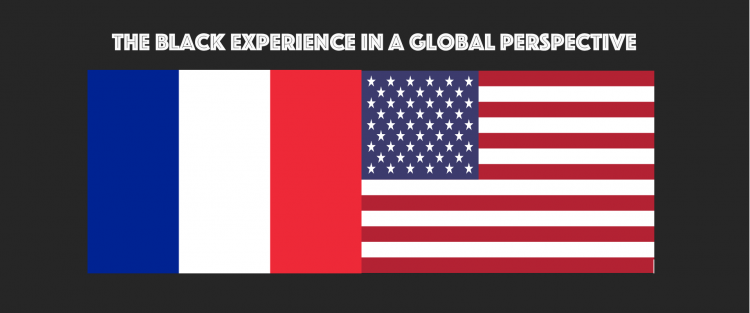To Be Black in French and American Contexts

Our histories make us who we are. Whether that be the case for a person, a community, or a nation. I am a first-generation Haitian-American black girl from Atlanta Georgia, now residing in Paris, France for my higher education. My particular experiences have affected the way in which I view the world and the way I identify. Upon moving to France, those definitions changed in more ways than I expected. Portions of my identity which I took advantage of (My ‘American-ness’, my close ties with my Haitian heritage, etc.) became more apparent in this new soil. After some time analyzing these observations, I came to this conclusion: France is a nationality-based country in the same way America is race-based. In order to properly evaluate these claims between French and American diversity affairs, one must understand their particular histories.
France is much, much older than America. It went through five different republics before America was even brought about as a country. With that in mind, America has been automatically more progressive, as their laws and mandates are newer than those of France. This translates to the rules of diversity regarding both countries. America, a country originating as a melting pot of sorts, except through the brutality of slavery, has set a particular tone for the country. When it comes to preserving the country’s traditions, it is quite apparent what those traditions are, thus the country is forced to stray away from its past. France, on the other hand, developed its colonization through other means --- outside of the country’s borders. Because of this, there are no transparent cues of systemic issues within the country when it comes to diversity. In fact, France considers itself a color-blind state, which essentially disallows any racial or religious census taking in the country. In its approach, this was to unite the country with all individuals under the umbrella of ‘French’, as opposed to America’s race-based questions on every official document and test. In theory, the lack of a census in France is a great idea, if race and history did not exist. Unfortunately, however, it leads to a lot of ignorance and erasure towards minority groups when it comes to statistically understanding the real inequality in the country. Patrick Simon in ‘The Choice of Ignorance: The Debate on Ethnic and Racial Statistics in France’, explains that despite its aim “No one would contest the fact that the absence of the official use of ethnic or racial categories fails to curb the spread of prejudice and stereotypes...the main result of the social and statistical invisibility of ‘race’ and ethnicity may well have been to conceal the extent of discrimination” (Simon).
I see this ignorance towards racial issues quite frequently in French discourse. Coming from Atlanta, Georgia, a city with a large black community with a strong history surrounding civil rights, I was quite surprised about the microaggressions I received in France regarding my skin or my hair. At first, I defended these actions on the lack of education or awareness surrounding black culture in France, but have now grown to believe that perhaps this lack of awareness has been purposeful. The absence of data concerning the diverse populations of Paris deprives histories and cultures to be expressed and celebrated as well. By counting all citizens as ‘French’, the country denies any dissimilarity.
Surprisingly and contrarily, I find living in France as an American has brought me a lot of privilege. While I am still black, the fact that I speak English and come from a place glamorized in the media often makes me more interesting in conversation. Through this, I came to understand nationality meant more than race, in certain contexts, in France. Living in America, I never considered myself a part of the country, actually moving away to France to escape the traumas of living in the south. Here, however, that plays a huge part in my identity. In the states, whether consciously or subconsciously, my blackness was always a factor in the way I moved, particularly in white spaces. For this reason, I typically stayed in black spaces. Here, I find that people often stick with those of the same ethnic background. I am often asked where I really come from after I say I’m American, as being black does not have the same identifiable weight in France as it does in the US. I am fortunate enough as a black American to know my direct family lineage connecting with Haiti, but this is not the case for millions of Americans brought during the slave trade, with their heritage wiped away. Black Americans have formed their own subset of culture and tradition, not directly linked with the country itself. For this reason, as well, there is no focus on ethnic background when it comes to the black population. Race is forced to be the defining factor when it comes to differentiating Americans, hence it also serving as the reason for many divisive tactics in the country as well.
Overall, no country is perfect. I had the naive perception that by leaving America, I would also be leaving all of the problems of a country. Instead, I’ve learned the different perspectives surrounding my own identity. Both America and France have taken strides into different forms of inclusion, and have failed in other areas. It is only through the reflections of their successes and shortcomings that we can truly become more inclusive.







